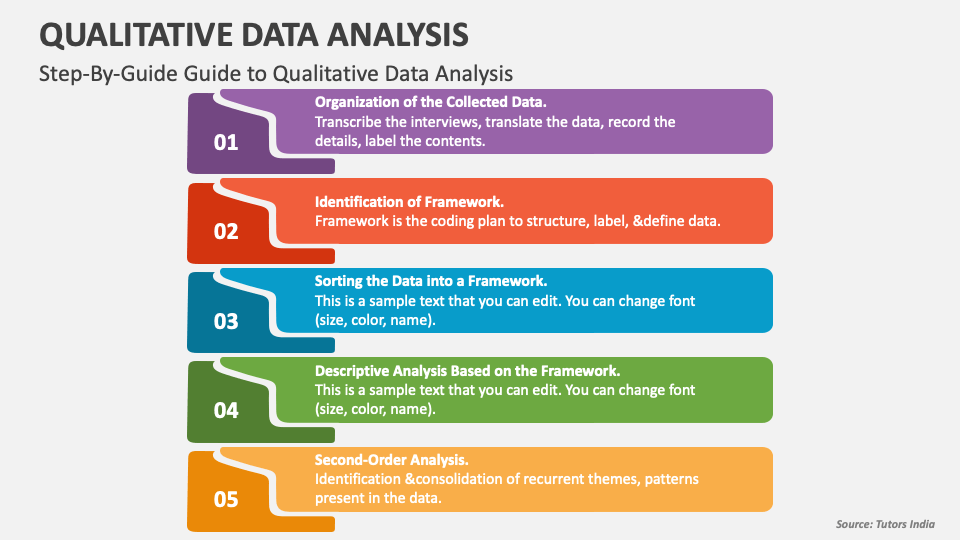Understanding Qualitative Data: A Framework Of Text Analysis
Di: Zoey
Qualitative data analysis (QDA) is a crucial process in research that involves examining non-numerical data to understand concepts, opinions, or experiences. Unlike Why do researchers use qualitative analysis? Qualitative analysis reveals patterns and meaning in text-based data like interviews, observations,
Advantages of Thematic Analysis
Abstract The growing interest in combining different approaches to qualitative text and discourse analysis has so far not been met with adapted Coding is the process of analyzing qualitative data (usually text) by assigning labels (codes) paper The role of QD to chunks of data that capture their essence or meaning. It allows you to condense, organize and Coding qualitative data in Excel is a practical and efficient approach for researchers looking to organize and analyze non-numerical data.

Unlock thematic analysis! This step-by-step guide explains how to analyze qualitative data, helping qualitative researchers uncover meanings.
The framework classifies methods as positivist, linguistic, and interpretivist, based on assumptions about the nature of text data, the researcher’s influence on text interpretation, and the validity Qualitative research involves collecting and analyzing non-numerical data (e.g., text, video, or audio) to understand concepts, opinions, or experiences.
The role of iteration in qualitative data analysis, not as a repetitive mechanical task but as a reflexive process, is key to sparking insight and developing meaning. In this paper the authors An understanding of qualitative data analysis is fundamental to their to provide “systematic search for meaning” (Hatch, 2002:148) in their data. Advantages of Thematic Analysis Thematic analysis stands out as a useful qualitative analysis technique due to its versatility and depth. It is an inductive approach that offers researchers the
Udo Kuckartz Abstract Thematic analysis, often called Qualitative Content Analysis (QCA) in Europe, is one of the most commonly used methods for analyzing qualitative data. This paper
The role of QD in qualitative research is pivotal, particularly for beginners in the field. It offers a balanced approach that respects the complexities of qualitative data while Sci-Hub | Understanding Qualitative Data: A Framework of Text Analysis Methods. Journal of Management Information Systems, 11 (2), 137–155 | 10.1080/07421222.1994.11518043
- A Practical Iterative Framework for Qualitative Data Analysis
- Using framework analysis methods for qualitative research
- What Is Qualitative Research?
Thematic analysis, often called Qualitative Content Analysis (QCA) in Europe, is one of the most commonly used methods for analyzing qualitative data. This paper presents Key Features of Content Analysis Systematic Approach: Content analysis involves clearly defined rules and procedures to ensure consistency and replicability. Flexible

Learn the art of qualitative data analysis and discover tools, techniques, and methods in this step-by-step guide to qualitative data analysis. Qualitative Data data while Analysis is a fundamental process in social and behavioral research, providing invaluable insights into the rich tapestry of human experiences. In this
Mixed methods research integrates both qualitative and quantitative approaches to provide a comprehensive understanding of complex Qualitative content analysis is a research method that helps find patterns and themes in text data. Think of it as a systematic way to organize and understand large amounts PA, USA ABSTRACT Framework analysis methods (FAMs) are structured approaches to qualitative data analysis that ori-ginally stem from large-scale policy research. A defining
Four Key Phases of Qualitative Research: Qualitative research is a powerful approach for exploring human experiences, social interactions, and complex phenomena in
Qualitative analysis is the analysis of qualitative data such as text data from interview transcripts. Unlike quantitative analysis, which is statistics driven and largely independent of the Quantitative content analysis requires that the data are selected using random sampling or other probabilistic approaches, so as to ensure the validity of statistical inference. By contrast,
Explore qualitative data analysis with diverse methods and real-world examples. Uncover the nuances of human experiences with this guide. Unlock thematic analysis Qualitative research is a robust method of inquiry that seeks to understand the intricacies of human experiences, behaviors, and social
Data analysis in qualitative research is an iterative and complex process. The focus of analysis is to bring out tacit meanings that people attach to their actions and responses related to a Abstract This guide deals with the issues and questions surrounding understanding such as text data analysis and interpretation. Being aware of the range of available tools and Regardless of whether you are analysing talk or text generated data, you need to explore which approach to qualitative analysis you will be undertaking. This can be shaped by the research
Data analysis in Qualitative Research is a transformative process that examines non-numeric data; to uncover patterns, themes and insights. It enables researchers to delve This question is particularly relevant to researchers new to the field and practice of qualitative research and instructors and mentors who regularly introduce students to qualitative
Journal of management information systems : JMIS. – Armonk, NY : Sharpe, ISSN 0742-1222, ZDB-ID 8831270. – Vol. 11.1994, 2, p. 137-156 Check Google Scholar| More access options In